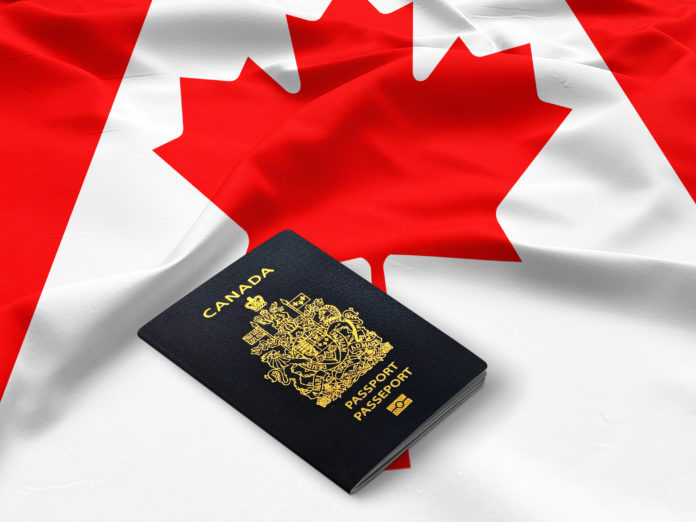
Ontario’s new Working for Workers Act will slap the biggest fines in Canada on employers who withhold the passports of their temporary foreign workers.
“Anyone who preys on vulnerable members in our community has no place in our society,” said Ontario Immigration Minister Monte McNaughton.
“If you think you’re going to deny someone’s basic human rights by withholding their passport, we’re going to hit your pocketbook, and you will be behind bars for a long time. We will continue to use every tool in our toolbox to ensure Ontario is a province where hard work pays off and big dreams come true.”
Read More Canada Immigration News
Canada Issued Double The Number Of Temporary Resident Visas In 2022
Saskatchewan To Nominate 42% More Canada Immigration Candidates In Three Years
Parents And Grandparents Program: Canada More Than Doubles Number Of New Permanent Residents
Under the proposed law which has been introduced in the legislature, withholding a foreign national’s passport or work permit could lead to fines ranging from $100,000 to $200,000 for every worker whose rights are violated.
In addition to the per-passport penalties, those found guilty of breaking the proposed law would be liable to either a fine of up to $500,000 or up to a year in prison – or both. Corporations convicted would be liable to fines of up to $1 million.
The Working for Workers law, which would be the third iteration of this law which has had previous versions in each of the last two years, also includes proposed changes to protect remote workers during mass terminations and expands the number of reasons for which reservists can take military leave.
The act would also force construction sites to have women’s-only washrooms and boost cancer coverage for firefighters.
Human rights activists are supporting the proposed legislation. Megan Walker, the now-retired executive director of the London Abused Women’s Centre, says the proposed legislation will send a strong message to those who exploit migrant workers.
“The government is giving migrant workers back their human right to have control over their own documents including their passports,” said Walker.
There are those, though, who say even more needs to be done to beef up the rights of temporary foreign workers in Ontario.
More Needs To Be Done To Hold Employers Accountable, Says Refugee Centre Director
“While this will hold employers accountable, there is still much more progress to be made,” said Loly Rico, executive director of the FCJ Refugee Centre.
“This is only the beginning. We need to see changes in policies on a federal and provincial level that will protect workers and their rights and break down the barriers to equity amongst all workers in Canada.”
Since November 2021, Ontario created a new unit to ferret out human trafficking and this has already led to criminal charges, occupational health and safety and employment standards prosecutions, orders and other compliance activities.
Video
York Regional Police chief Jim MacSween says he and his investigators in the force’s human trafficking section are eager to see this new legislation come into effect.
“This legislation … will provide us with another tool to fight labour trafficking and the exploitation of vulnerable people in our community,” said MacSween. “This new law will allow our officers to hold individuals and companies accountable for their actions.”
Canadian employers can recruit and hire foreign nationals through the Temporary Foreign Worker Program (TFWP) and the International Mobility Program (IMP).
TFWP Provides A Pathway For Employers To Hire Foreign Nationals To Work In Canada
The Global Talent Stream (GTS), a part of the TFWP, can under normal processing situations lead to the granting of Canadian work permits and the processing of visa applications within two weeks.
Foreign nationals hoping to gain their permanent residency in Canada can seize the opportunities offered by Canada’s currently-tight labour market to immigrate through the country’s many economic immigration programs.
Under the Express Entry system, immigrants can apply for permanent residency online if they meet the eligibility criteria for one of three federal immigration programs, the Federal Skilled Worker Program (FSW), Federal Skilled Trades Program (FST), and Canada Experience Class Program (CEC), or a participating provincial immigration program.
Candidates’ profiles then are ranked against each other according to a points-based system called the Comprehensive Ranking System (CRS). The highest-ranked candidates will be considered for an Invitation to Apply (ITA) for permanent residence. Those receiving an ITA must quickly submit a full application and pay processing fees, within a delay of 90 days.
Through a network of Provincial Nominee Programs (PNP), almost all of Canada’s ten provinces and three territories can also nominate skilled worker candidates for admission to Canada when they have the specific skills required by local economies. Successful candidates who receive a provincial or territorial nomination can then apply for Canadian permanent residence through federal immigration authorities.

